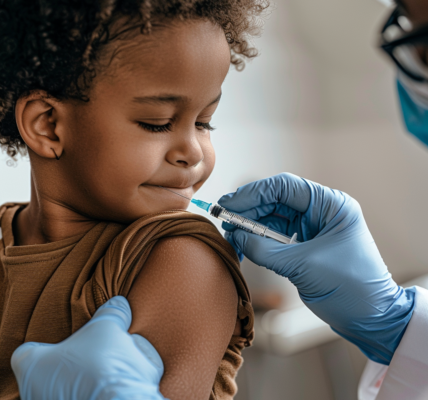Recent research from the UK has highlighted a notable trend regarding the effectiveness of the Measles, Mumps, and Rubella (MMR) vaccine, particularly in the context of a slight increase in measles infections among adults who have received the vaccine. This study, conducted by a team at the London School of Hygiene and Tropical Medicine, emphasizes the importance of maintaining high vaccination rates to ensure community immunity.
The study was prompted by data showing that the share of measles cases among individuals who had received two doses of the MMR vaccine in England rose from 1.9% in 2011 to 7.2% by 2019. This increase has raised concerns among health professionals regarding the long-term effectiveness of the vaccine.
Through mathematical modeling, researchers sought to determine whether this rise in cases among vaccinated individuals was due to a small number of people failing to gain full protection from the vaccine or if it could be attributed to a gradual decrease in vaccine effectiveness over time. Their findings suggest that the latter explanation—gradual waning of immunity—provides the most accurate account of the observed data.
While the MMR vaccine continues to offer robust protection against measles throughout life, the study revealed that its effectiveness diminishes by approximately 0.04% each year after immunization. For instance, an individual born in 1995 who received two doses of the MMR vaccine before the age of five would still enjoy a vaccine effectiveness of about 98.4% at the age of 45, assuming they gained full immunity from the vaccine.
Lead author Dr. Alexis Robert, a mathematical modeller specializing in infectious disease dynamics, underscored the significance of these findings. “Although our research shows that the MMR vaccine remains highly effective, it is crucial to recognize that decreasing vaccination rates can lead to a higher incidence of measles infections, even among those who are vaccinated,” he stated.
The researchers noted that the increase in measles cases among vaccinated individuals is not solely due to waning immunity but is also linked to a decline in overall vaccine uptake within the community. When vaccination rates drop below the necessary threshold, it creates an environment where outbreaks can occur, even among those who are vaccinated.
The study’s results were published in The Lancet Public Health, and they serve as a reminder of the critical role that vaccination plays in public health. High vaccination coverage is essential not only to protect individuals but also to maintain herd immunity, which is vital for preventing outbreaks of contagious diseases like measles.
As health authorities continue to monitor vaccination rates and disease incidence, the findings from this research could inform future public health strategies aimed at boosting MMR vaccination uptake. Ensuring that a high percentage of the population remains vaccinated is key to preventing the resurgence of diseases that were once under control.
Public health experts are urging communities to prioritize vaccination and to address any hesitations regarding the MMR vaccine. Educational campaigns that provide clear information about the benefits and safety of vaccinations could play a crucial role in enhancing public confidence and encouraging higher uptake rates.
In conclusion, while the MMR vaccine remains a powerful tool in the fight against measles, ongoing efforts to promote and maintain high vaccination rates are essential to safeguard public health and prevent future outbreaks.





